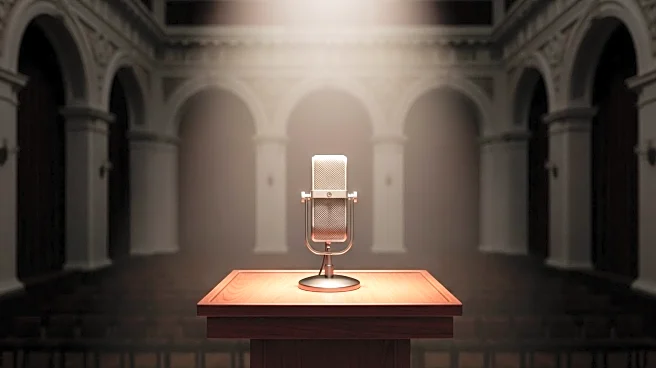What's Happening?
On September 26, 1960, the first nationally televised presidential debate took place between John F. Kennedy and Richard Nixon in Chicago. This event marked a significant moment in U.S. political history, showcasing the power of television in shaping public perception. The debate is remembered for its impact on the election, as Kennedy's confident and charismatic television presence contrasted with Nixon's less telegenic appearance. This debate set a precedent for future presidential campaigns, emphasizing the importance of media strategy and visual presentation in politics.
Why It's Important?
The Kennedy-Nixon debate is a pivotal moment in the history of political communication, illustrating the transformative role of television in elections. It highlighted the need for candidates to adapt to new media technologies and underscored the influence of visual media on voter perceptions. This event paved the way for the modern era of political campaigning, where media appearances and image management are crucial components of electoral success. The debate's legacy continues to influence how political figures engage with the public and the media, shaping the strategies of contemporary campaigns.








